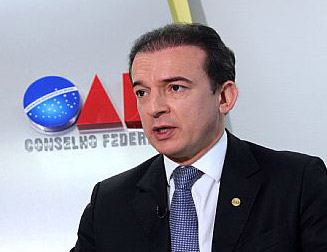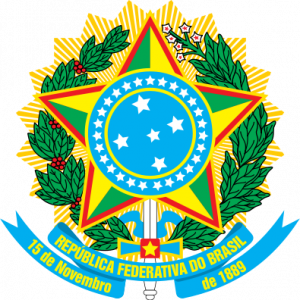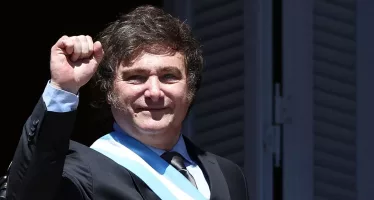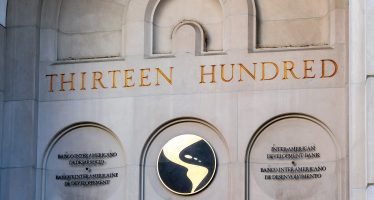The Brazilian Bar Association and the Citizenship
By Ophir Cavalcante Junior
The Brazilian Bar Association`s institutional and statutory role gave lawyers and its representative entity responsibilities that go beyond merely corporative interests, giving them an active participation on the work for the nowadays Rule of Law.
When the Brazilian Constitution recognized that “the lawyer is indispensable to the administration of justice and is inviolable for his acts or manifestations in the exercise of his profession, within the limits of the law”, the article 133 turned the lawyer into a professional of the citizenship, a defender of the society`s interests, of the correct application of the law and of the democratic institutions.
At the same time, the Brazilian Constitution gave the Brazilian Bar Association the prerogative of applying the abstract constitutional control of laws by the use of the Direct Action of Unconstitutionality filled at the Brazilian Supreme Court, every time laws jeopardize the collective interests. This prerogative, it is important to say, is inalienable. The citizens should not be massacred by the State inefficiency; this is why the Brazilian Bar does not hesitate about putting a magnifying glass over the acute social issues, aiming to open the debate and because it considers that Brazil, even though it has advanced in the last years, still faces serious structural problems.
With one of the worst tax systems in the world, Brazil also has one of the most chaotic tax legislations – complex, redundant, with too many laws, decrees, resolutions and other pieces of legislation, many of them contradictory, causing experienced lawyers to get confused, what to say about the taxpayer-citizen? The citizen, in addition to submit itself to an irrational chain of ancillary obligations, it needs to forbear a series of benefits for economic sectors more capable of contributing.
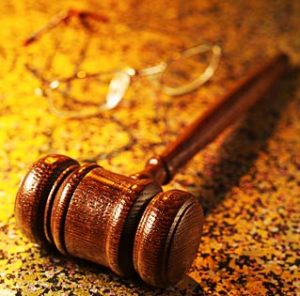 In this matter, the system has become terribly unfair to the poor ones. Workers that earn up to two minimum wages dedicate 197 days of work to pay taxes, according to a research of a renowned institute for economic research, in a perverse equation that reduces the weight of the taxes as the income increases. Who earn more than 30 minimum wages dedicates 106 days of work to pay taxes, according to the same research.
In this matter, the system has become terribly unfair to the poor ones. Workers that earn up to two minimum wages dedicate 197 days of work to pay taxes, according to a research of a renowned institute for economic research, in a perverse equation that reduces the weight of the taxes as the income increases. Who earn more than 30 minimum wages dedicates 106 days of work to pay taxes, according to the same research.
Therefore, when there is no equity and the social return of the tax collected is low, citizenship is not exercised, and the citizenship is essential for the achievement of the purposes established in our Constitution, of building a free, fair and altruist society; to guarantee the national development; to eradicate poverty and marginalization, to reduce social and regional inequalities and to support everyone’s welfare.
Nevertheless, Brazil needs an independent and also strong judiciary to meet social demands. Our democracy, unfortunately, is deprived of social content, for it does not fully meet the essential needs of the people, who are, after all, the agent, means and end of development.
Only with a strong judicial system we can strengthen civil liberties, the establishment of jurisprudence, the inviolability of constitutional rights of assembly and free expression of thought. The judiciary is the stronghold of citizenship. It no longer is the Moderating Power, but the Stabilizer Power, which promotes the balance of the democratic State. It is also the Assuring Power of legal certainty, of active freedom and of the Constitution.
And what does the Constitution say? That the Law is for everyone and everyone is equal before it. When I refer to “everyone”, it means from the top to the base of the pyramid, because only the Law, when seen in its rites and procedures, represents the antidote for any crime. It does not matter whether it is a mere misdemeanor, breaking the electoral law, or the most sophisticated attack to the public treasure.
“That the Law is for everyone and everyone is equal before it.”
– Constitution of Brazil
In a democratic Rule of Law, the powers interact independently and harmoniously, without interfering in each other. These are basic concepts that date back to our Republican model that survived, thanks to a strong judiciary. Whenever there was an attempt to disrupt this balance, trying to discredit judicial decisions, there was the mark of the discretionary and arbitrary governments.
Quoting Rui Barbosa, one of the greatest Brazilian jurists of the twentieth century and patron of our organization, the courts do not use swords. The courts do not have the treasury, the courts do not choose representatives and senators, the courts do not make ministers and do not distribute candidacies, do not elect presidents; courts do not run militias, armies and navies. The courts judge. It is for fear of the courts that the tyrants tremble.
Then, the role of advocacy wins prominence as a tool to ensure social peace and contribute to changes. There is a social frame housing the lawyer’s profile, which the infra-constitutional legislator strengthened in the law 8,906/94, the Statute of Advocacy and of the Brazilian Bar Association, when it gave functional independence, and by providing the lawyer is inviolable for his acts, in the exercise of his profession, equating it to the judges and prosecutors. Moreover, in the large scope of the administration of justice, the lawyer’s soul is present, either in the judge or the prosecutor, because either one or the other became a member of the world of Law through the doors of the legal profession.
Therefore, we cannot accept that the lawyer, when exercising his constitutional right of defending the prosecuted, be evaluated with a certain tinge of complicity. It is also unacceptable that lawyers` activities be restrained by the most prosaic difficulties, mostly imposed by completely uninformed people – or who pretend to be uninformed – about the role of lawyer.
“There is no hierarchy or subordination among lawyers, judges and members of the Public Prosecution Service, and all must treat each other with reciprocal consideration and respect,” says article 6 of the Statute. Likewise, the lawyer must “freely exercise the profession throughout the national territory; have respected, in name of the defense of freedom and of professional secrecy, the sanctity of his or her office or place of work, of his or her files and data, his or her correspondence and communications, including telephone or related communications, except in the case of search and apprehension determined by a judge.”
The lawyer can enter freely “in court session rooms, even beyond the gates that separate the area reserved to the judges; in hearing rooms, secretary offices, court record’s offices, justice offices, notary and registration services, and, in the case of police stations and prisons, even outside of working hours and regardless of the presence of those in charge of them”.
Many confuse such treatment with corporative privileges, but the lawyers’ prerogatives are, in matter of fact, the citizens’ prerogatives. It is the client’s right that is being discussed. It does not matter if the client is poor or rich, if he has influence or not. Everyone has right to presumption of innocence, to the contradictory, to the due legal proceeding. No one can be condemned unless by res judicata. And the lawyer is the effective link between these fundamental rights of citizenship and the Justice.
It is quite important to emphasize that the legal provisions of our class, since the 30’s, assigned the legal profession the practice of a pure liberal profession. Throughout the years, however, the profile of the lawyer has changed. There was the “proletarization” phenomenon of the legal profession, turning the professional, most of the time, into an employee, who depends on a job relation, either in the public sector, or in the private sector. The Statute, by contemplating the figure of the employer lawyer and the employee lawyer, took into consideration the maintenance the lawyer’s personal independence, as well as the obedience of his prerogatives and of the ethical principles, essential concepts from the practice of the legal profession, including giving prominence to the social mission of the lawyer.
It must be mentioned the importance of the requirements of moral and ethical nature that the lawyer incorporates, when he comes into contact with the learning and knowledge environment. The lawyers must remember that the ethical principles are part of their moral and professional responsibilities, starting from respect. The lawyers must also to keep in mind the fidelity principle, always pursuing credibility.
The lawyer only subordinates himself to his conscience and to the law, this is a classic principle to be followed. His mind must be enlightened by the flame of responsibility and by the light of truth, without which ethics is only an illusory game. Moreover: the individual conduct of the lawyer is reflected in the collective image. What a lawyer comes to represent, as concept and identity, ends up spreading itself over the social spectrum. So causing the bond of ethics solidarity that should unite the advocacy body.
As far as it fights for these issues, the Brazilian Bar Association establishes itself as a result of collective work, the amalgam between the practice of law and the citizenship, a fundamental condition for the consolidation of a just society.
About the author: Ophir Filgueiras Cavalcante Junior is the current president of the Federal Council of the Bar Association of Brazil. Dr. Ophir Cavalcante was born in Belén, Pará, having graduated in Law from Universidade Federal do Pará in February 1983.
About OAB: Currently with 733,597 lawyers and almost 100,000 law clerks, the Brazilian Bar Association is made by a Federal (“Conselho Federal”) and several Regional Associations (“Seccionais”), one per state and federal district. It fully and legally controls law practice by private attorneys in Brazil.
You may have an interest in also reading…
‘The Madman’ Takes Charge: Javier Milei Inaugurated President of Impoverished Argentina
In his inaugural address to the nation on Sunday, delivered on the steps of the Argentina’s domed neoclassical congress, President
Don’t Expect Miracles from the Multilaterals
by Otaviano Canuto Latin American and Caribbean economies need help, but organisations such as the IDB are also stretched thin.
Otaviano Canuto, World Bank Group: BRICS Apart as Oil Prices Plunge
The oil price plunge since last June has been deemed, overall, as a boon for the global economy. However, that















































































